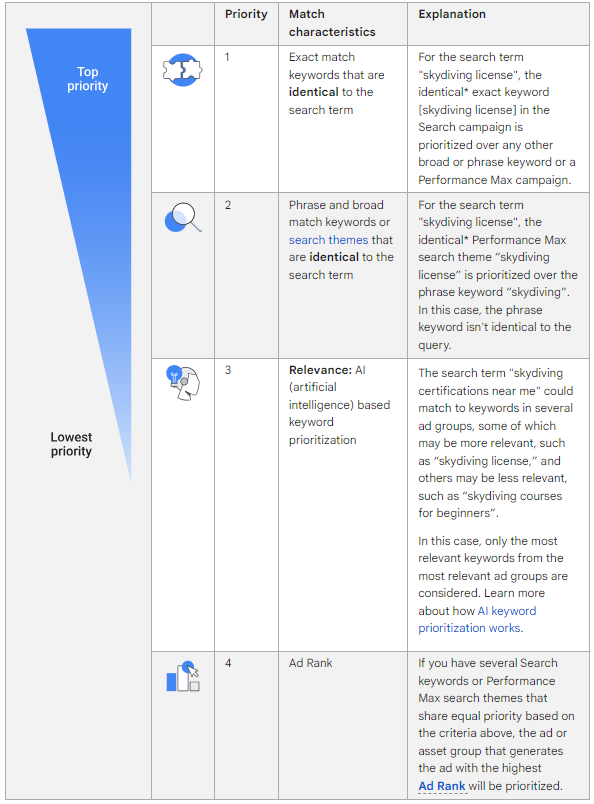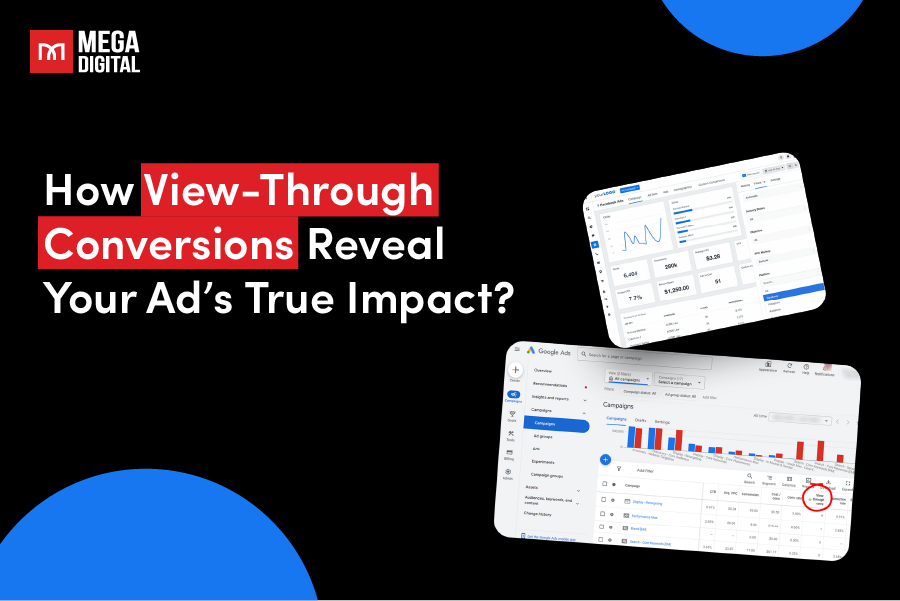Managing keyword and search theme prioritization in your Google Ads account is key to getting the most out of your campaigns. Your ads appear when one of your keywords or search themes matches a user’s search term on Google or its partner sites. Knowing how to navigate keyword-matching options and search themes, especially in Performance Max campaigns (Beta), can make a big difference in your ad performance.
Keyword Matching and Auction Dynamics
In Google Ads, multiple keywords targeting the same domain that match the exact search term won’t compete against each other in the auction. For instance, if you have “skydiving course” and “skydiving training course” in the same ad group, both can match the search term “training course for skydiving.” However, only one keyword will trigger an ad for that search term. The table below shows which keywords are prioritized for entering the auction.
Quick Note: Once your ad is in the auction, it competes with ads from other advertisers. Your cost-per-click (CPC) is the minimum amount needed to meet the Ad Rank thresholds and outbid the next highest competitor if there is one.

AI-Driven Keyword Prioritization
Google Ads uses AI to prioritize the most relevant keywords, even if they aren’t an exact match to the search term. This ensures that only keywords from the most appropriate ad groups match your search term. The AI looks at the meaning of the search term, all the keywords in an ad group, and the associated landing pages. This AI-based prioritization is applied to keyword-based Search campaigns. Imagine someone searches for “skydiving certifications near me.” Here’s how different ad groups might match that search:
Ad group “Skydiving License”
- Keywords: Skydiving license, how much is a skydiving license
- Landing page: Detailed page about the licensing process
Ad group “Advanced Skydiving Courses”
- Keywords: Advanced skydiving courses near me, advanced skydiving lessons
- Landing page: Dedicated page for advanced courses
Since both ad groups have related intents, searching for “skydiving certifications near me” could match both under a broad match. However, AI-based prioritization would only enter the “Skydiving License” ad group into the auction because “license” and “certifications” are more closely related than “courses” and “certifications.”
If the search is “advanced skydiving courses to get licensed,” keywords from both ad groups are equally relevant. In this case, the keyword with the higher Ad Rank will enter the auction.
Conclusion
Mastering Google Ads’ keyword prioritization and AI-driven query matching can significantly boost your campaign performance. You can improve ad efficiency and ROI by prioritizing the most relevant keywords.
Keep up with the latest features and best practices in Google Ads to optimize your campaigns. For more insights on optimizing your Google Ads campaigns, check out our detailed guide on Creating Effective Google Ads Strategies.










